#john brooke
Text
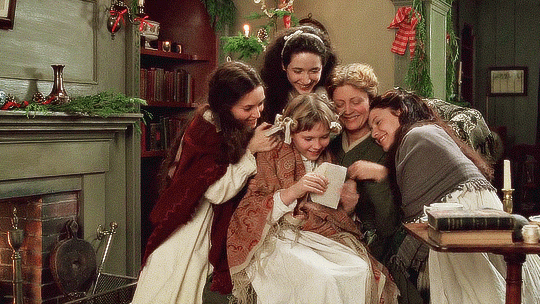
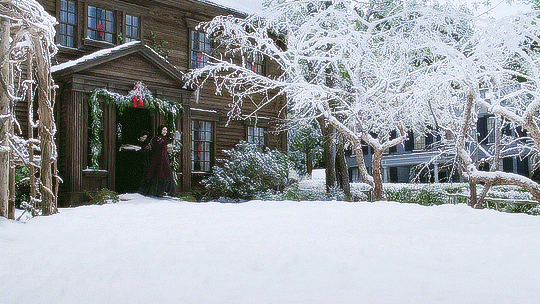
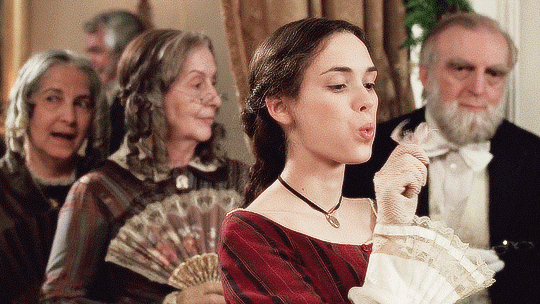
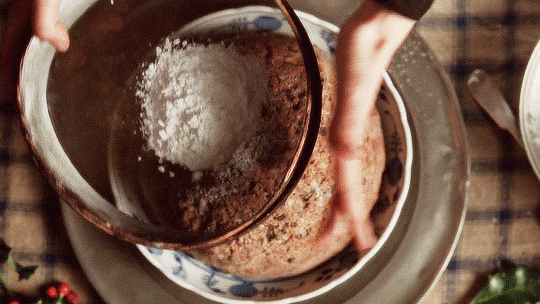

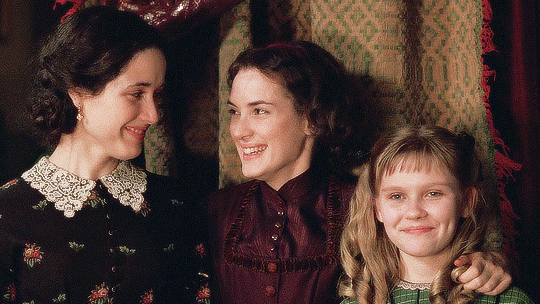


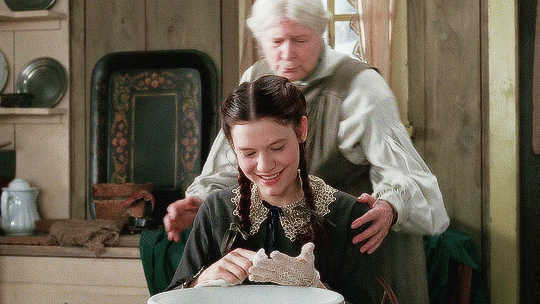
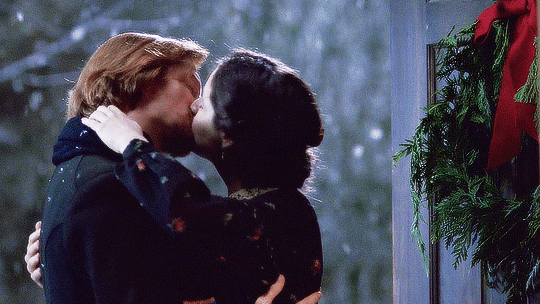
—Little Women (Gillian Armstrong, 1994)
#Little Women (1994)#Winona Ryder#Jo March#Kirsten Dunst#Amy March#Claire Danes#Beth March#Trini Alvarado#Meg March#Christian Bale#Theodore “Laurie” Laurence#Eric Stoltz#John Brooke#Susan Sarandon#Marmee March#Florence Paterson#Hannah#Christmas#Kiss | John and Meg#Snow
241 notes
·
View notes
Text
So I’m not sure if it was Greta Gerwig herself or a movie reviewer but I once read a criticism of the men in Little Women, saying that the March women’s husbands are all varying degrees of useless or disrespectful. Saying that John belittles Meg and her housework and that Friedrich has no respect for Jo’s work. And I have to say… what??
Meg and John are a great example of a healthy couple. Yes, he laughs when her jelly doesn’t turn out, but is he belittling her? No! He just finds it amusing because it is, at least to an observer. And he gets miffed that the house isn’t in order, but in fairness, she did say he could bring a friend whenever and dinner would be ready. They go through rough patches, but they always talk it out and keep on pulling as a team.
And the big one that everyone is mad about, Friedrich criticizing Jo’s writing. I think these people didn’t read the book because Fritz never reads Jo’s sensational stories. He finds a story in a newspaper — specifically stated to not be one of hers — and broadly criticizes that kind of story. This isn’t directed at Jo, it’s directed at writers of these stories in general (again, Friedrich doesn’t know Jo is one of them). But Jo takes his words to heart because he’s spoken to her conscience, and then she makes the decision to burn them all up and quit writing that genre of story. She listens to him because she knows him to have a strong moral compass, which is a big part of why she likes him so much. He helps her grow and become a better person and writer without having to give her direct advice!! And that’s beautiful!! And I’m sick of people who wanted Jo to stay single taking their disappointment and turning it into “all the husbands in Little Women were bad husbands and the second half is a commentary on how terrible it is to be married.” No. Stop it. Read the book. Cut it out with the cynicism.
#little women#little women 2019#louisa may alcott#jo march#meg march#john brooke#friedrich bhaer#jo x friedrich#meg x john#elly's posts
164 notes
·
View notes
Text
Some “Little Women” thoughts – In defense of Meg’s marriage
@littlewomenpodcast, @thatscarletflycatcher, @joandfriedrich
Whether Little Women is a feminist book or an anti-feminist book will probably be debated forever.
Most of the debate seems to center around the character of Jo: whether she’s depressingly “tamed” in the end or matures in a healthy way, whether her marriage is anti-feminist or not, and whether or not it’s “anti-feminist” that in the end she’s a schoolmistress instead of a famous author. (Though of course she’ll eventually be a famous author in Jo’s Boys.) But similar debate surrounds the other March sisters too, for various reasons.
Not even Meg, the sister whom readers most often seem to overlook, is spared from these debates. Many feminist critics, such as (but not limited to) Samantha Ellis in her book How to Be a Heroine, have criticized the chapters depicting Meg and John Brooke’s married life in Part II. They label those chapters “depressing,” and they feel as if Meg and John are constantly at odds with each other and miserable. They argue that each of their marital conflicts ends with Meg learning to be a more submissive wife who placates and effaces herself for her husband. And they despise John, labeling him “selfish” and “disrespectful.”
Sometimes I wonder if I read the same book that they did.
It seems obvious to me that Meg and John’s marriage is a happy and healthy one: Alcott is just honest about the fact that even the happiest marriage includes conflict and requires work. Some of these critics seem to think fictional marriages only exist in two forms, “perfect” and “toxic,” with no in-betweens. Nor does John deserve half the negative commentary he gets, nor does Meg’s personal growth within her marriage consist of learning to be a submissive or self-effacing wife. On the contrary, much of her growth consists of her learning that she doesn’t need to be a “perfect” housewife and mother who gives and demands too much of herself, and their marriage becomes more of an equal partnership by the end, not less of one.
Let’s look in depth all three of Meg and John’s marital conflicts.
First there’s the jelly incident.
Here we see the first of a recurring theme: Meg is determined to be the perfect housewife and is "over-anxious to please.” She wants to do everything right and do it all by herself, because she’s afraid that otherwise, she'll be a failure. In terms of her personality type, I agree with @funkymbtifiction that Meg is an ESFJ. In the book, if not in all adaptations, Meg and Amy are both ESFJs: Amy is more of the sparkling “Glinda in Wicked” variety, while Meg, apart from her streak of vanity, is more of the down-to-earth, motherly, “Mrs. Potts in Beauty and the Beast” variety. But Meg in particular shows what @alittlebitofpersonality calls the ESFJ Type Angst. Her eagerness to manage her marriage and motherhood in the most pleasant, correct way (her strong Fe and Si) and her fear of possible failure (her weak Ne and Ti) give her, in A Little Bit of Personality’s words, a “frantic desire to do everything and get it done right now,” so she drives herself too hard.
She shouldn’t have promised John that he could bring home a dinner guest at any time; that’s unrealistic. Nor should she have tried to make jelly for the first time in her life using only the memory of watching Hannah make it; she should have invited Hannah over to help her. Nor should she have become so absorbed in making and re-making the jelly that she didn’t cook dinner; nor should she have let herself be so distraught about the failed jelly, or lost her temper with John and then run to her room, leaving him to improvise a bread-and-cheese dinner and entertain Mr. Scott alone.
John is also at fault and acknowledges it. He shouldn’t have forgotten that Meg was making jelly that day and brought home a guest without warning. He shouldn’t have laughed at Meg’s anguish over the failed jelly, nor should he have joked that he and Mr. Scott “won’t ask for jelly” with dinner. But let’s be fair to John. His laughter is probably just as much out of relief as out of amusement, because when he first comes home and finds Meg sobbing, he worries that something terrible has happened. Then, when he realizes no food has been cooked, he’s understandably annoyed because he’s come home from work tired and hungry, with a guest too, and Meg hasn’t done what she promised she would. But he doesn’t lose his temper; he stays calm and amiable and accepts a cold-cut meal; he just gives his annoyance a tiny vent with his joking barb about the jelly. Then Meg overreacts in response.
In the hours afterwards, he and Meg are still polite to each other, just a bit distant, each sorry but waiting for the other to apologize first. Then, when Meg finally breaks the ice, they both apologize (not just Meg – in fact only John verbally apologizes, Meg just does it with a kiss), everything is fine again, and from then on they both laugh about the incident.
Maybe by modern standards, it is problematic that Marmee has urged Meg to be careful not to make John angry and to always apologize first when they’re both at fault. But it’s not because John has “a volcanic temper,” as Samantha Ellis inexplicably claimed– he so clearly doesn’t! Nor is Marmee’s message “Men are less forgiving than women so we need to placate them.” She’s not talking about “men,” but about John the individual, and she’s not urging Meg to placate him either. All she means is that John’s anger doesn’t flare up and die quickly like the March women’s, but simmers much longer because he represses it.
Then there’s the silk incident.
Say what you will about vanity-shaming and other gendered implications (which of course are valid), but Meg didn’t need an expensive silk dress, and she shouldn’t have ordered it without telling John. It’s not that a wife should ask her husband’s permission to spend money; it’s that no one, regardless of gender, should do anything behind their spouse’s back that they’re ashamed to admit. And again, John doesn’t get angry. He accepts the expense without complaining. He’s just hurt; he works so hard to provide for Meg, and the fact that what he provides isn’t good enough for her, that she says “I’m tired of being poor,” makes him feel inadequate. Yet he tries not to show his hurt and is willing to let Meg have the dress. He cancels his own order for a new overcoat so they can afford it; he’s willing to sacrifice something he needs for something Meg wants but doesn’t need. When Meg sells the silk and buys the overcoat for John instead, she’s only repaying his selflessness in kind.
Finally, we reach the chapter “On the Shelf.”
I’ve read several feminist articles that criticize this chapter and especially John’s behavior in it. But I don’t agree with any of them. John isn’t being selfish the way Meg briefly thinks he is; he’s not jealous of her attention to the twins. By all appearances, Meg genuinely neglects him and overwhelms herself too, because she devotes every waking moment to her two toddlers and thinks no one can properly take care of them but herself. Again she’s trying to be superhuman because she’s afraid of failure. She doesn’t let John be a parent to his own children, or take any time to relax either, and she spoils the twins and makes things harder for herself by giving in to their tantrums. I understand why some feminists are rankled when John starts spending his evenings elsewhere, Meg feels ignored, and Marmee tells her it’s her own fault for forgetting ‘her duty to her husband.” But even if that wording isn’t ideal by modern standards, it's arguably true. To blame John for “not bothering” to help take care of the twins and “forcing” Meg to do it all alone, as some of these critics do, is just the opposite of what the chapter means to convey.
And again, John doesn’t get angry or complain. Nor, unlike what some of these critics seem to think, does he cheat on Meg, either physically or emotionally. He just goes to visit the Scotts rather than feel lonely and useless at home (where Samantha Ellis got the idea that he goes to “what sounds like a dodgy establishment” is beyond me; it’s a friend’s house), and just because Meg worries that his eye is roving to pretty Mrs. Scott doesn’t mean it is.
Arguably, this chapter has a very feminist message about egalitarian marriage and co-parenting. Instead of doing all the work alone and sacrificing her own wellbeing, Meg learns to share her parenting duties with John, and to let Hannah babysit often so they can have much-needed time to themselves too. She also starts to converse with John about politics, so he doesn’t constantly feel the need to seek out a male friend to discuss them, and he returns the favor by conversing with her about domestic subjects too. Traditional gender divides are relaxed. By the end of the chapter, their marriage is more balanced and equal than ever.
I’ve also read complaints about John’s co-parenting. The fact that Meg is portrayed as too soft-hearted, spoiling rowdy Demi and needing John to discipline him. The fact that John and therefore Alcott advocates the potentially traumatic “cry it out” method of sleep training. The fact that John insists on handling Demi’s tantrum in his own way despite Meg’s objections and Meg reluctantly gives in, with references to John’s “masterful tone” and Meg’s “docility.” The possible sexist implication that John knows how to parent better than Meg does.
But I don’t think Alcott meant to imply that John is a better parent than Meg or meant us to see him as lording over her. Even though he won’t let her give in to Demi’s demands, what finally stops Demi’s tantrum is a kiss from Meg after he’s been allowed to cry for a few minutes. They solve the problem together by combining John’s discipline with Meg’s tenderness. Then John shows tenderness of his own by lying down on the bed and holding Demi as he falls asleep, so it’s not a straightforward “cry it out” that he (or Alcott) advocates for sleep training, but something closer to the Ferber Method.
Of course there is an old-fashioned, traditional aura to Meg and John’s marriage and to their roles in the house: Meg as homemaker and John as breadwinner, Meg as nurturer and John as disciplinarian to the twins, and her fondness for sitting in his lap. But of the four March sisters, Meg was always the most traditional young woman of her era. Her marriage dynamic might not be what Jo or even Amy would want, but it’s just right for Meg. And Alcott shows us that with the right effort, even a basically traditional marriage can be egalitarian and mutually healthy.
The one feminist complaint I might sympathize with is that all three of these episodes do revolve around Meg learning to be a better wife. In each instance, Meg is portrayed as being more at fault than John, and she’s the one who learns the chief lesson. But I don’t consider this a sexist choice either. The March sisters are the protagonists of Little Women. Their coming-of-age journeys and personal growth are the focal point. John is a supporting character, so it’s arguably only natural that the “married life” chapters focus more on Meg’s personal growth than on his.
These are the reasons why I personally enjoy the chapters revolving around Meg and John’s marriage, and why I don’t consider them problematic or “depressing.” They’re just a realistic portrayal of the struggles, mistakes, and conflicts that occasionally rise within a happy marriage, which are resolved in a healthy way when both partners put in the necessary work. I understand where the critics who dislike those chapters are coming from, but I can’t bring myself to agree.
#little women#louisa may alcott#meta#analysis#meg march#john brooke#marriage#parenting#feminism#rambling
92 notes
·
View notes
Text

my god this reminds me, of when we were young
a Little Women modern AU series
9k // rated t
#littlewomenedit#little women#little women 2019#amy x laurie#meg x john#march sisters#jo march#laurie laurence#amy march#meg march#beth march#john brooke#modern little women#modern au#my fics#my moodboards#all images from pintrest
111 notes
·
View notes
Text

outside they’re push and shoving / you’re in the kitchen humming
Part 13/?? of my favorite ships x taylor swift songs | Meg March x John Brooke
#sorry but bbc Meg March OUTSOLD#John Brooke#meg march#Meg x John#bbc little women#little women aesthetic#katie’s favorite ships x favorite taylor swift songs#little women#my moodboards#Katie’s ships & songs
33 notes
·
View notes
Text
John: Hey, I'm heading to the market, can I get you anything?
Laurie: *lying flat on his back* My will to live.
John: ... I mean, Amy's out with Meg, but I can try to find her if you want.
35 notes
·
View notes
Text
The chapter in the book Little Women/Good Wives, and the scene in the movies of Jo's proposal and married life are So Important. They show the heroine living a happy and unconventional lifestyle: It says that this life she leads with work, marriage, and very little money is a good, wholesome life. That is so important.
But - I think an overlooked chapter in the books (not depicted in the films that I have seen) is the one in which Meg tries to cook and preserve currant jam. She has a miserable day, turned even worse when her husband John brings home a friend for dinner. For once, Meg snaps at him and he snaps back when provoked.
Eventually, Meg takes some good advhice from Marmee, and she brings peace. The chapter ends with a line about married life foe these two not being perfect - it will always have its difficulties, but peace has been preserved and quarrels will be managed.
In another chapter, after Meg has had twins, she understandable becomes so wrapped up in them that she neglects both herself and her husband. Neither the book nor I are saying that one partner should be a servant to the other. But in marriage, we have promised something of ourselves to them*. Meg has isolated herself from the world and grown irritable while she rarely sees John who spends time at his friend's house instead of being nagged at home.
Again, Meg takes initiative and fixes it. This is a bit of a pattern that we see the world over today, in which women usually take the emotional burden in the home. I have no comment to make on that, it's not the point of this post.
The point is: The book has made a few excellent points through everyday, domestic scenes about marriage which are not (or only rarely) shown on film. The glamour, unpredictability and excitement of Jo's publishing, marriage to the Professor, work and, from a plot-based POV, the fact that she is the main character, mean that her storyline is in the spotlight. I love her storyline. But I also think that Meg's has something important to teach us: If you choose the more traditional path, your life is just as full of adventure and growth, difficulties, pain and pleasures.
*talking about non-toxic nd non-abusive relationships.
#meg marg#little women#meg brooke#john brooke#marmee#book little women#book analysis#book to film#film adaptation#louise may alcott#bookaholic#stories#book
57 notes
·
View notes
Text

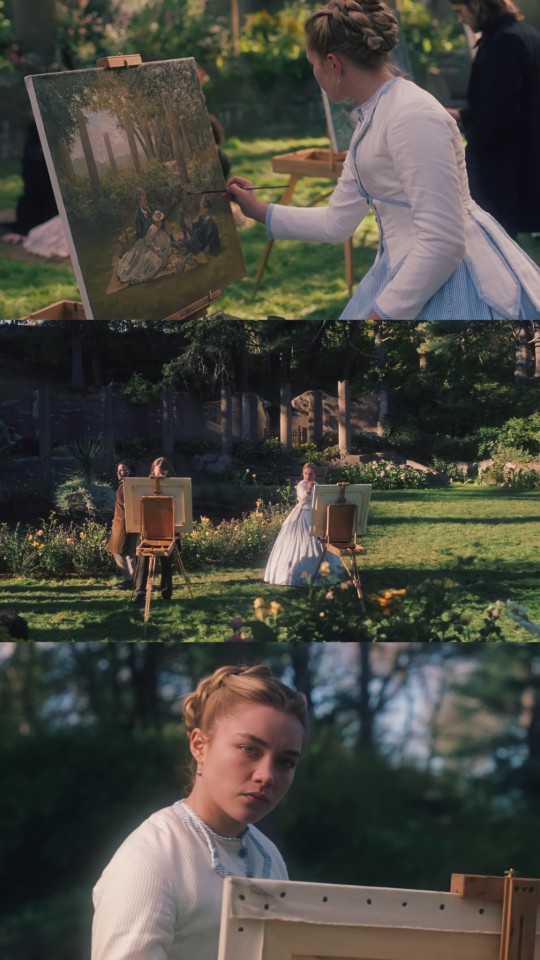



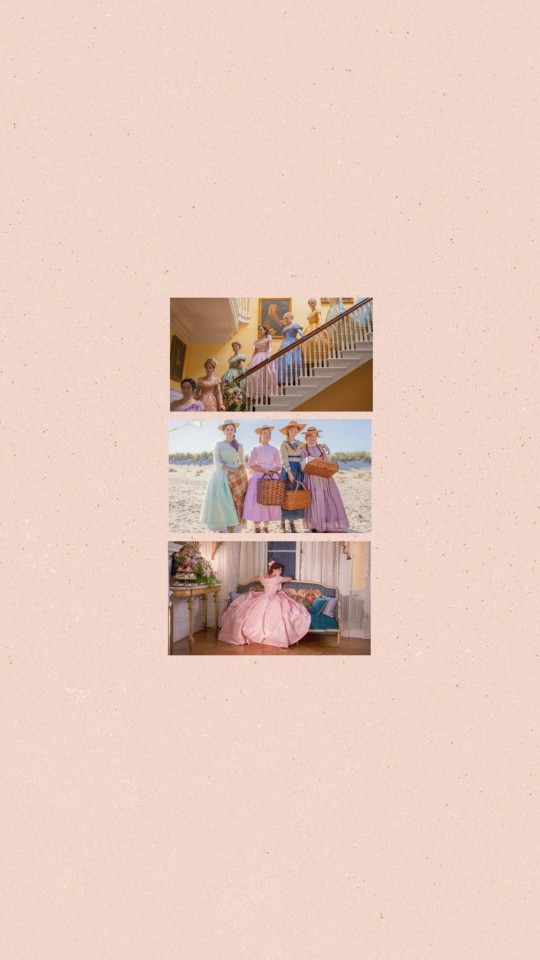
please like/reblog if you save!
more lw 2019 lockscreens here!
#little women#little women lockscreens#little women wallpapers#little women 2019#jo march#friedrich bhaer#amy march#theodore laurence#laurie laurence#john brooke#meg march#jo x bhaer#march sisters#emma watson#louis garrel#james norton#florence pugh#saoirse ronan#perioddramaedit
168 notes
·
View notes
Text
If I had a penny every time there was a nineteenth century book with a dignified and responsible woman named Margaret who is deeply connected to her sibling(s) and falls in love with a stoic gentleman named John who is involved with education and has a close relationship with Margaret’s father, I’d have two pennies. Which isn’t a lot but it’s weird that it happened twice.
#mine#books#classic lit#north and south#elizabeth gaskell#little women#louisa may alcott#meg march#john brooke#margaret hale#john thornton#these connections are pretty arbitrary but it’s still funny to me#phi rambles
16 notes
·
View notes
Text
#little women#louisa may alcott#little women book#meg march#jo march#amy march#march sisters#laurie laurence#friedrich bhaer#john brooke#meg x john#jo x friedrich#amy x laurie#literary polls
4 notes
·
View notes
Text
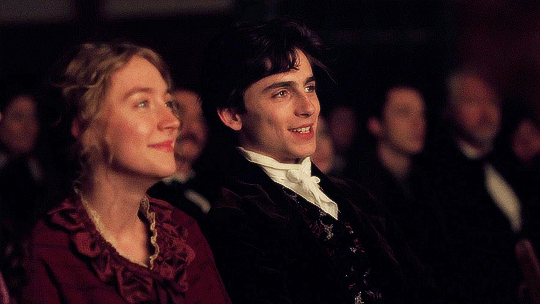
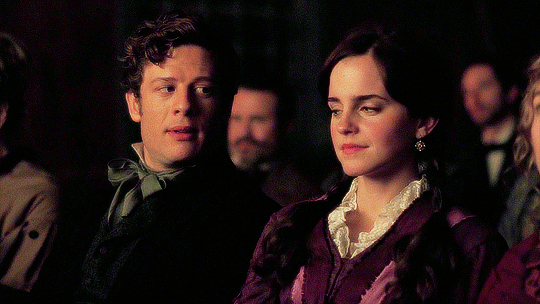
—Little Women, (Greta Gerwig, 2019)
#Little Women (2019)#Meg March#John Brooke#Emma Watson#James Norton#Saoirse Ronan#Jo March#Timothée Chalamet#Theodore “Laurie” Laurence
170 notes
·
View notes
Text
Meg in Little Women: Learns that she doesn't need to devote every waking moment to her two toddlers; that motherhood shouldn't mean neglecting either her husband's needs or her own. Learns to let John take an equal part in raising the twins, and to sometimes hire a babysitter so she and John can have time for themselves and for each other again. Their marriage emerges stronger and more egalitarian than ever, and the children are better off too.
"Feminist" critics: This is sexist garbage, urging young mothers to prioritize their husbands above everything else, even the needs of their children.
me: ?????
@littlewomenpodcast
179 notes
·
View notes
Text
Little Women 2022 | Alcott Comparison
It’s really interesting to see the 2022 Korean adaptation of Little Women and how it’s approaching this story in such a fresh and captivating way. There are a lot of obvious changes to the narrative but I wanted to focus on the points of the story that we’ve seen so far that do parallel the original, in order to gauge where the story might be heading.
In this case, let’s talk about the Meg/John dynamic.
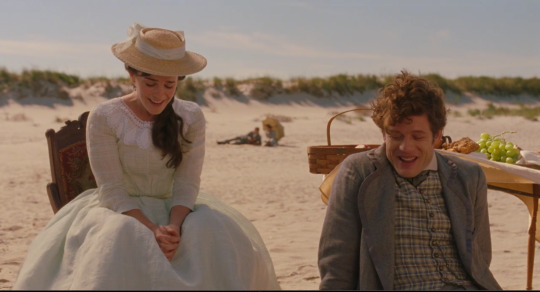

In-joo and Do-il are representing the characters of Meg March and John Brook. In Louisa May Alcott’s original story, Meg and John get married, have two children, and work through the ups and downs of married life – particularly when it comes to finances. In the book Meg has a desire to own fine things and be able to keep up with her wealthier friends. Saying to John at one point, “I don’t mean to waste your money…I can’t resist them when I see Sallie buying all she wants, and pitying me because I don’t. I try to be contented, but it’s hard, and I’m tired of being poor.” (Chapter 28) Additionally, Meg’s expenses keep John from being able to buy a new winter coat that he desperately needs. Meg sees the benefits of finances differently than her family does and, albeit temporarily, she longs to live in that world. She goes to the fancy party and, too Laurie’s dismay, is flirting with some of the richer men and playing the part of a women with wealth by using the name Daisy. Even if it’s only for a night, she wants to indulge in that lifestyle before giving it up to later be with John in poverty.
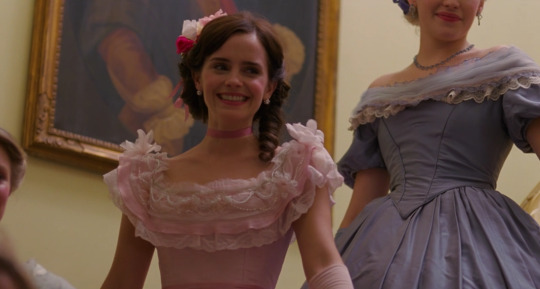
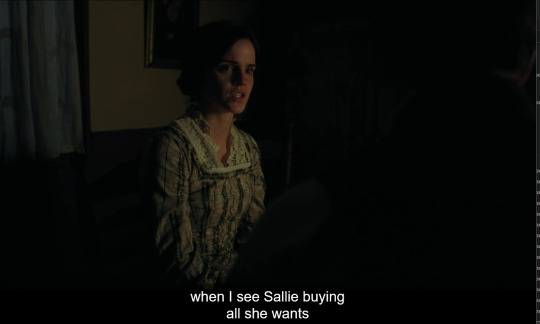

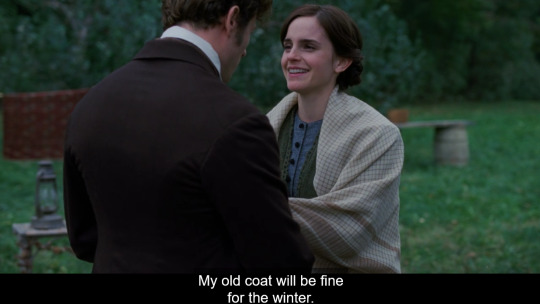
We see these moments paralleled in the 2022 version. In-joo is tired of being poor and longs to have the things that her wealthier friend has (Hwa-young, who is playing the role of Sallie), who in turn pities her and offers to buy her things instead (the orchid shoes, for starters). In-joo sees the benefits of money and how having it can protect and save her family. She longs for the security of finances and the opportunities it can bring much like Meg does. Also, one of the first things she buys with her money is a new winter coat, a nice reference to John Brooke in the original. When In-joo receives the money from Hwa-young, she also takes a turn playing a part, mainly with Hyo-rin’s mom – but like with Daisy, it’s a fleeting moment before it’s gone.



Now for Do-il. It’s interesting that he is first introduced as somebody who is pretty avaricious and who’s main focus is centered on money. As is with his book counterpart, John Brooke, who spends a fair amount of time dealing with money-related issues throughout the story, Do-il’s main concerns are also centered around money and finances. Also like his book counterpart, Do-il spends a lot of time teaching In-joo and providing information for her in the form of the ledgers, IOS, and figuring out what Hwa-young was doing in Singapore. And lastly, we see Do-il step up to protect In-joo much like John Brooke steps in to protect Meg many times.
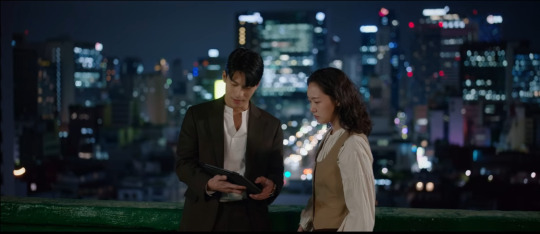
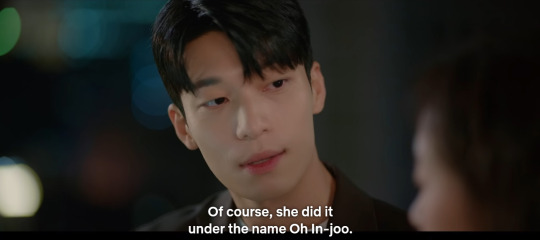
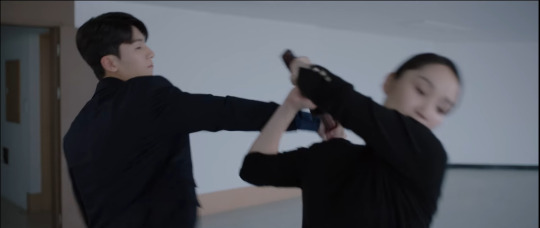

Do-il is a mystery, and his moral compass, motive, and past are all clouded in shadows. But we might be able to shed some light on him if this story does in fact follow Alcott’s original design.
That being said, stepping into the realm of conjecture and hypothesis, Do-il has some serious potential that shouldn’t be ignored – particularly for anybody questioning a romantic tie between him and In-joo.
First, in the book John Brooke is the first to fall for Meg. He holds on to her glove in secret as a sweet keepsake and quietly bids his time until her affections are returned. In the book he says, “I won’t trouble you, I only want to know if you care for me a little, Meg. I love you so much, dear.” (Chapter 23). One theory in the Do-il/In-Joo romance camp is that because Hwa-young and Do-il were good friends she could have spoken a lot about In-joo during their time together. Do-il, therefore, could already have had developed feelings for In-joo long before her met her just from what he had heard. We even get a nod towards this when they’re eating together.

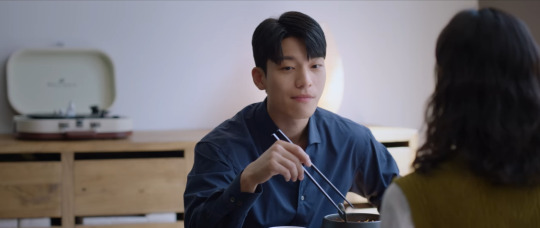
Another theory in that same camp is how this story seems to be inverting some of the major plot points of original (e.g. the Mrs. Oh being selfish, stealing the money and running away vs Mrs. March being everything selfless and being a walking moral compass). An inversion of Meg and John’s struggles with having no money by having In-joo and Do-il’s struggles revolving around having TOO MUCH money is a clever spin on the tale and something that wouldn’t be surprising to see.

Since In-joo and Do-il have been paired together since the first episode and have already entered into a partnership with one another with the ledgers, their connection to one other can’t be ignored or downplayed. And considering the original text by Alcott, it would be hard-pressed (although not impossible) to have these characters completely avoid a romantic subplot as their relationship will need to have some sort of arc to it. It could remain completely platonic, of course, but given that In-joo has already been married once and has mentioned it several times, In-joo’s love life has already been included in the story and is part of her character design. It would seem the natural conclusion to draw out this thread in her character, especially if In-joo and Do-il are to represent the Meg/John dynamic.
Also, given how fundamental the romantic relationships are to Alcott’s original story and how each of those relationships reflect the character growth and overall themes of the book, it would be a surprise if this version excluded all romantic subplots.
Whether or not Do-il is actually a shady avaricious narcissist who will betray everybody and turn out to be the Big Bad remains to be seen. Currently, there seem to be other characters that have more going for them in that regard, but ultimately it’ll just come down to how far the writer of this series wants to stray from the original narrative. Clearly there are a lot of secrets surrounding Do-il and being reproachful and apprehensive of his character is only natural. But given the number of other twists and turns in this plot it would make sense to have a steady baseline character or plot point for the audience to fall back on (like the romance between Vincenzo and Cha-young in Vincenzo). A trustworthy friend in Do-il, or a romantic subplot with him and In-joo would easily fulfill that need and would also parallel Alcott’s original story.
That being said – I am fully prepared to throw all this out the window because Do-il is shady as heck and could very well be the mastermind behind all this.

#Please give me a happy ending with these two because their chemistry is so good#little women#little women 2022#kdrama#do-il#in-joon#meg march#john brooke
72 notes
·
View notes
Text
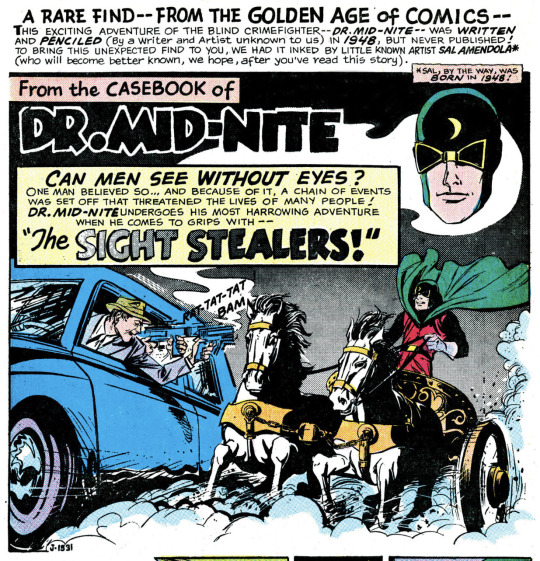
Can men see without eyes?
#adventure comics#dr midnite#charles mcnider#the sight stealers#chariot#lost story#John Brooke#Sal amendola#dc comics#comics#70s comics#bronze age comics
20 notes
·
View notes
Text
Me reading the title of chapter 19: John my man I've missed you buddy
Me reading chaper 19:

3 notes
·
View notes
Text
Meg/Jo/Laurie: You tolerate me.
John/Friedrich/Amy: I love you.
#submission#little women#incorrect quotes#meg march#jo march#theodore laurence#john brooke#friedrich bhaer#amy march#meg and john#meg x john#jo x friedrich#jo and friedrich#amy and laurie#amy x laurie
26 notes
·
View notes